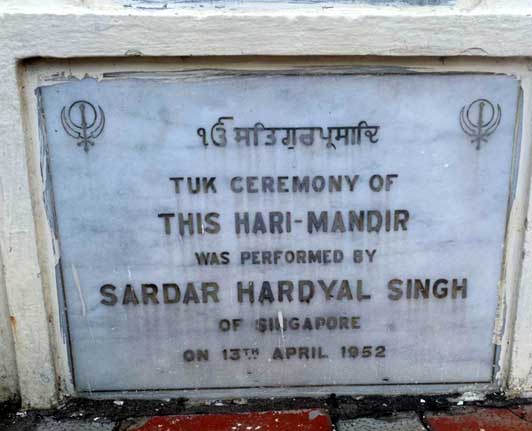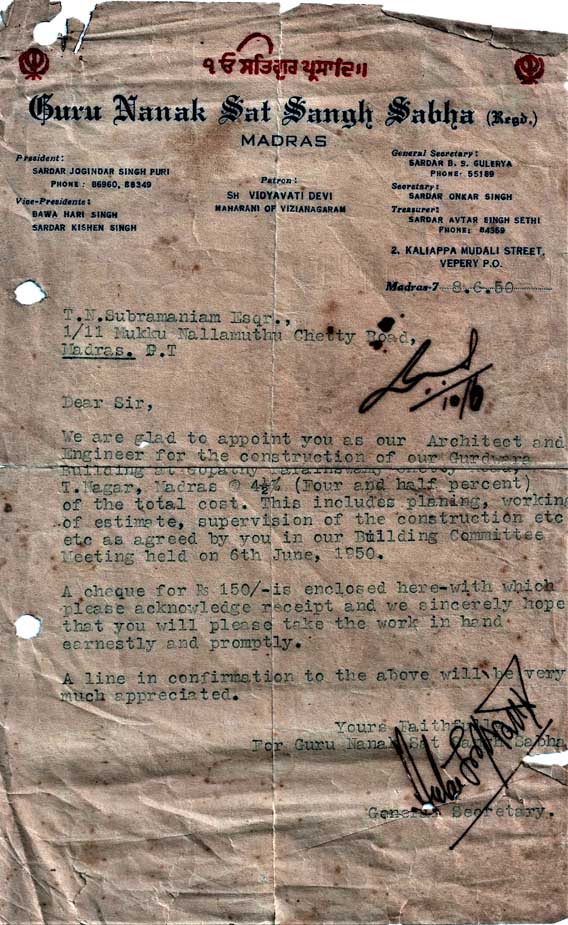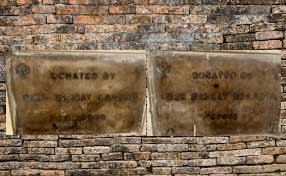Chennai Gurdwara marks 70th year, recalls role of South East Asian Sikhs
On Baisakhi Day this year, under the sewadarship of transport tycoon, social and religious activist Rajinder Singh Bhasin, the Sri Guru Nanak Sat Sangh Sabha, Chennai celebrated 70 years of its foundation day. Eminent personality and writer Ujagar Singh traces the origins of the Gurdwara formation, particularly the role of South-East Asian Sikhs, who used Chennai, then Madras as the gateway to the world.
![On Baisakhi Day this year, under the sewadarship of transport tycoon, social and religious activist Rajinder Singh Bhasin, the Sri Guru Nanak Sat Sangh Sabha, Chennai celebrated 70 years of its foundation day. Eminent personality and writer Ujagar Singh traces the origins of the Gurdwara formation, particularly the role of South-East Asian Sikhs, who used Chennai, then Madras as the gateway to the world. On the auspicious day of Baisakhi, in the early hours of 13 April 1952, Hardyal Singh […]](https://www.theworldsikhnews.com/wp-content/uploads/2022/04/Old-Gurdwara-360x266.jpg)
On the auspicious day of Baisakhi, in the early hours of 13 April 1952, Hardyal Singh of Singapore in the august presence of stalwarts of the community in Chennai including army officers, businesspersons, cricket legends, transporters, furniture makers and steel rolling mill owners laid the foundation stone of Sri Guru Nanak Satsangh Sabha at Theagraya Nagar on the Gopathi Narayan Chetty Road in then Madras, now Chennai city in true Gurmat tradition of cutting the earth after Ardas.
Oral history tells us that the Sangat numbered nearly two thousand five hundred and many of them travelled from Panjab from Jalandhar, Ludhiana, Hoshiarpur, Moga, Delhi and other towns like Jabalpur, Bhubanespur and Bokaro, Bombay, Hyderabad, Vijayawada, Bangalore, Coimbatore and Calcutta to grace the occasion.
Furthermore, native Tamils, Telugus, Sindhis, Gujaratis and Biharis were also present on the occasion.

In those days, the governments at Bombay and Calcutta Presidencies were not very friendly or favourable to the Panjabis. Yet some of the pushy men willy-nilly managed to embark from these towns including from Chittagong, now in Bangladesh particularly those who went to Burma -now Myanmar and Indonesia.
In contrast, the governments and the local people of Madras had been more warm and helpful to these adventurers and for this reason, a large number of Sikhs and Panjabis preferred Madras. It was a common practice to see a large number of them arriving every year. Upon arrival, they had to be sheltered by the Gurdwara and the Punjab Association for as many as 3 to 5 months as it was difficult to get a confirmed seat on the next ship to go to distant foreign shores, as the ships were few and far between. Then, air travel was prohibitively expensive.
Architect T. N. Subramanian’s connection to Chennai Gurdwara
 My father, the then Chief Engineer for Patiala Construction Company Private Limited was asked by Maharaja Patiala to go to Madras to design the Gurdwara there. I happily share the copy of the letter addressed by Sardar B. S. Gulerya, General Secretary, Guru Nanak Sat Sangh Sabha, Madras on 8th June 1950 to my father late Shri. T. N. Subramanian. I will be happy to connect with the Sikhs of Chennai someday soon. Sat Sri Akaal. —Ravi Subramanian
My father, the then Chief Engineer for Patiala Construction Company Private Limited was asked by Maharaja Patiala to go to Madras to design the Gurdwara there. I happily share the copy of the letter addressed by Sardar B. S. Gulerya, General Secretary, Guru Nanak Sat Sangh Sabha, Madras on 8th June 1950 to my father late Shri. T. N. Subramanian. I will be happy to connect with the Sikhs of Chennai someday soon. Sat Sri Akaal. —Ravi Subramanian
Architect T. N. Subramanian’s connection to Chennai Gurdwara
 My father, the then Chief Engineer for Patiala Construction Company Private Limited was asked by Maharaja Patiala to go to Madras to design the Gurdwara there. I happily share the copy of the letter addressed by Sardar B. S. Gulerya, General Secretary, Guru Nanak Sat Sangh Sabha, Madras on 8th June 1950 to my father late Shri. T. N. Subramanian. I will be happy to connect with the Sikhs of Chennai someday soon. Sat Sri Akaal. —Ravi Subramanian
My father, the then Chief Engineer for Patiala Construction Company Private Limited was asked by Maharaja Patiala to go to Madras to design the Gurdwara there. I happily share the copy of the letter addressed by Sardar B. S. Gulerya, General Secretary, Guru Nanak Sat Sangh Sabha, Madras on 8th June 1950 to my father late Shri. T. N. Subramanian. I will be happy to connect with the Sikhs of Chennai someday soon. Sat Sri Akaal. —Ravi Subramanian
Their first destinations invariably were Singapore and Penang in Malaya -now part of Malaysia, primarily because our simple folks were hard-working, dutiful, intelligent, daring, and industrious people as compared to the local labour then available.

Sikhs earned the trust of their employers and found jobs in the Police, Army, Civil guards, factories and shipping companies.
The Gurdwaras in Singapore and Penang played a significant role in procuring decent well-paid jobs for the emigrants of Punjab and guaranteeing the trustworthiness of their folks.
Ujagar Singh is a former IAS officer, International President of the World Spiritual and Research Foundation and legal advisor to the International Academy of Accredited Arbitrators, Hague at its Chennai branch.
